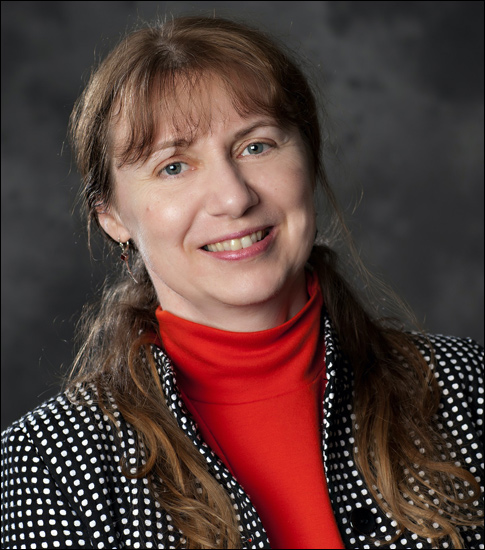
- ACM Athena Lecturer Award (2024)
- ACM Eugene L. Lawler Award for Humanitarian Contributions within Computer Science and Informatics (2024)
- ACM Fellows (2020)
- 2024-2025 ACM Athena Lecturer
- 2024 ACM Eugene L. Lawler Award for Humanitarian Contributions Within Computer Science and Informatics
- 2020 ACM Fellows Recognized for Work that Underpins Today’s Computing Innovations
ACM Athena Lecturer Award
USA - 2024
citation
For pioneering contributions to the field of socially assistive robotics, including groundbreaking research, evaluation, and technology transfer, and for fundamental work in human-robot interaction and multi-robot coordination.
Maja Mataric has made fundamental contributions to autonomous cognition and interaction. Her early work was the first to demonstrate that behavior-based systems (BBS) could be endowed with spatial representation and have the expressive power to plan and learn. Her system, Toto, was the first BBS capable of learning, mapping, and optimizing its behavior. Toto is highly cited and remains a milestone in robotics research. Mataric pioneered distributed algorithms for scalable control of robot teams and swarms; she enabled robots to collaborate on tasks including formations, exploration, and foraging. Her pioneering contributions to the theory and practice of multi-robot coordination showed that complex collective behaviors could be composed of basis behaviors in a principled way, bringing rigor to the then-nascent discipline of distributed robotics. Her work on distributed robotics and multi-robot coordination and learning was the first to provide formal analysis of robot coordination approaches, elucidating formal and practical limitations, and then contributing provably correct, yet scalable, multi-robot task allocation algorithms.
Socially Assistive Robotics
Mataric is a pioneer of the field of socially assistive robotics (SAR), which was named by her lab. SAR focuses on assistive human-robot interaction (HRI) enabling machines to help users through social, rather than physical support; it uses human-machine interaction to gain novel insights into human behavior and to develop systems that provide personalized assistive HRI in convalescence, rehabilitation, therapy, training, and education. Mataric's work has developed and deployed innovative HRI and SAR algorithms and systems that model user engagement, personality, motivation, and group moderation, and has evaluated them in complex real-world environments including schools, rehabilitation centers, retirement homes, and homes. Her research is aimed at major health, wellness, and learning challenges, including post-stroke rehabilitation, cognitive and social skills training for children with autism spectrum disorders, cognitive and physical exercises for elderly users and Alzheimer's patients, study support for students with ADHD, and personalized therapy interventions for students with anxiety and/or depression.
Mentoring
Mataric has been a strong mentor and advocate for underrepresented groups. She has mentored early career women via CRA-W and helped to place large numbers of women and members of other underrepresented groups in graduate programs and faculty positions. In recognition of her efforts, she was awarded the Presidential Award for Excellence in Science, Math and Engineering Mentoring in 2011 by President Obama.
Biographical Background
Maja Mataric is the Chan Soon-Shiong Chaired and Distinguished Professor of Computer Science, with courtesy appointments in Neuroscience and Pediatrics at the University of Southern California (USC), and a Principal Scientist at Google DeepMind. She is the founding director of the USC Robotics and Autonomous Systems Center, co-director of the USC Robotics Research Lab, past interim Vice President of Research (Jan 2020-Jul 2021), past Vice Dean for Research (Jul 2006-Dec 2019), and past President of the USC faculty and the Academic Senate (2005-06). She received her PhD in Computer Science and Artificial Intelligence from MIT in 1994, MS in Computer Science from MIT in 1990, and BS in Computer Science from the University of Kansas in 1987. She is a member of the American Academy of Arts and Sciences (AMACAD), Fellow of the American Association for the Advancement of Science (AAAS), IEEE, AAAI, and ACM. She received the US Presidential Award for Excellence in Science, Mathematics, and Engineering Mentoring (PAESMEM) from President Obama in 2011. She also received the Okawa Foundation, NSF Career, the MIT TR35 Innovation, the IEEE Robotics and Automation Society Early Career, and the Anita Borg Institute Women of Vision Innovation Awards, among others, and is an ACM Distinguished Lecturer. Within USC, she received the Provost's Mentoring Award, the Viterbi John O'Brien Service Award, the Viterbi School Service Award, and the Viterbi Junior Research Awards. She is featured in the documentary movie "Me & Isaac Newton".
ACM Eugene L. Lawler Award for Humanitarian Contributions within Computer Science and Informatics
USA - 2024
citation
For pioneering socially assistive robotics (SAR) for improving wellness and quality of life for users with special needs
Mataric is a pioneer of the field of socially assistive robotics (SAR), which was named by her lab. This work gains novel insights into drivers of human behavior related to overcoming challenges, and develops methods and systems capable of effective human-robot interaction (HRI) that provides personalized assistance in convalescence, rehabilitation, training, and education, in contexts where motivation and perseverance are necessary and difficult to sustain.
Mataric's work has developed innovative HRI and SAR algorithms and systems that model user engagement, personality, motivation, and group moderation, and has evaluated them in complex real-world environments including schools, rehabilitation centers, and retirement homes. Her research is aimed at major challenges, including post-stroke rehabilitation, cognitive and social skills training for children with autism spectrum disorders, cognitive and physical exercises for Alzheimer?s patients, study support for students with ADHD, and personalized therapy interventions for students with anxiety and/or depression.
By consistently focusing on users with differences and special needs, her work has tackled some of the most difficult computational challenges while being motivated and grounded in supporting the most ignored user groups. Throughout she has demonstrated breadth, depth, and heart, combined with results that directly connect computing with the real-world, with both broad-reaching, interdisciplinary impact on disenfranchised special needs user populations.
ACM Fellows
USA - 2020
citation
For contributions to socially assistive robotics and human-robot systems
Press Release